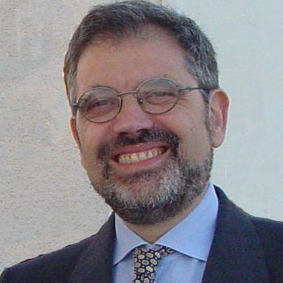This article is an addendum to an earlier post The other side of the peak: Italy’s collapse of oil and gas consumption.
As an integration of a previous post, where I was discussing the trends in oil and gas consumption in Italy, here is a comparison with the historical trends of the gross domestic product (GdP). As you can see, the GdP has started a clear trend of decline, after having peaked in 2007.
No GdP would exist without a continuous inflow of natural resources into the economy and the most important of these resources is energy. In Italy, gas and oil are by far the largest sources of primary energy (ca 77% of the total). So, qualitatively, we would expect that a decline in energy production would accompanied by a decline in GdP.
Now, the question is what causes what? That is, is the decline in GdP causing a decline in the demand and, consequently, a reduction in energy consumption? Or is the decline in energy availability that causes a decline in GdP? The data seem to favor the second hypothesis, since it is clear that "peak GdP" (2007) trails "peak hydrocarbons" (2005).
However, the concept of "cause and effect" may be misplaced in this case. Starting from the results of a paper published in "Energies" (U. Bardi and A. Lavacchi "A Simple Interpretation of the Hubbert Model" 2009), we can argue that the GdP can be seen as a proxy for the dissipation of the "capital stock" of a system where capital and resources are related in a feedback relationship. That is, capital is created in proportion to the rate of resource exploitation and resources are exploited at a rate proportional to the available capital. In the case of a non renewable resource, such as oil and gas, gradual irreversible depletion generates "Hubbert-like" (bell shaped) production curves and a peak in the rate of resource exploitation coming before the peak of capital dissipation.
In short, the economy of Italy seem to be declining as a consequence of the increasing cost (or – equivalently – declining energy returns, EROEI) of primary energy sources, mainly natural gas and crude oil. If such is the case, decline is irreversible. The only possibility to avoid this outcome is to decouple the economy from non renewable resources, generating energy using renewable ones.
_______________________________
Note for those who hate the concept of Gross Domestic Product, GdP. It has been said many times that GdP growth is not a worthwhile objective, since growth has little or nothing to do with quality of life and personal happiness. Fine, I agree, but we should not be confusing the concept of "growth", which we normally measure in terms of GdP and GdP itself, which does not necessarily imply growth.GdP is simply a useful measurement of the performance of an economy. Unfortunately, however, it is a fact that when GdP goes down, people tend to be very unhappy.
Note #2 (added after publication). You may be interested in a direct comparison of GdP and gas+oil consumption – which may be obtained by shifting the curve for GdP 2 years back in such a way to match the Oil+Gas peak. Here it is







